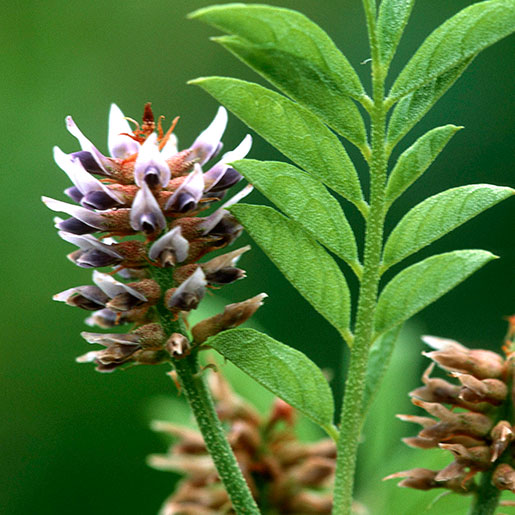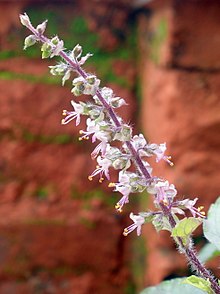
Adaptogens: Herbs that support the body's resilience to stress.
Share
In today's fast-paced, hyperconnected world, stress has become a constant companion. From the relentless demands of work to the constant barrage of digital information, it's no wonder that many of us feel overwhelmed and exhausted. This chronic stress can have a significant impact on our physical and mental health, leading to everything from fatigue and anxiety to weakened immune systems.
That's where adaptogens come in. These natural substances, derived from plants, help the body adapt to stress in a more balanced way. Unlike stimulants that provide a temporary energy boost, adaptogens work by supporting the body's natural stress response. They can help:
- Calm the mind: Reduce anxiety and promote a sense of tranquility.
- Elevate mood: Counteract feelings of depression and irritability.
- Boost energy: Increase stamina and combat fatigue.
- Sharpen the mind: Improve focus, concentration, and memory.
- Strengthen the immune system: Help the body better resist illness and disease.
Let's explore some of the most popular adaptogens in detail!
Ashwagandha (Withania somnifera)

Mechanisms of action:
- HPA axis modulation: Ashwagandha is believed to reduce cortisol levels, the stress hormone, by downregulating the hypothalamic-pituitary-adrenal (HPA) axis.
- Antioxidant properties: Ashwagandha contains compounds with antioxidant properties, which can help protect cells from damage caused by oxidative stress.
- Neurotransmitter modulation: Ashwagandha may influence the levels of neurotransmitters, such as GABA and dopamine, which can affect mood, anxiety, and stress.
Research:
- Studies have shown that ashwagandha can reduce stress, improve sleep quality, enhance cognitive function, boost immunity, and lower cortisol levels.
- Ashwagandha has also been studied for its potential to improve thyroid function, reduce inflammation, and support reproductive health.
Ginseng (Panax ginseng, Eleutherococcus senticosus)

Mechanisms of action:
- Energy production: Ginseng contains compounds that may stimulate the body's energy production pathways, increasing ATP levels.
- Immune system modulation: Ginseng may enhance immune function by increasing the activity of immune cells and promoting the production of cytokines.
- Neurotransmitter modulation: Ginseng may influence the levels of neurotransmitters, such as dopamine and norepinephrine, which can affect mood, energy, and cognitive function.
Research:
- Ginseng has been studied for its potential to increase energy, improve mental clarity, enhance athletic performance, and boost immunity.
- Ginseng has also been studied for its potential to improve cognitive function, reduce fatigue, and regulate blood sugar levels.
Rhodiola (Rhodiola rosea)

Mechanisms of action:
- Neurotransmitter modulation: Rhodiola may increase the levels of neurotransmitters, such as serotonin and norepinephrine, which can improve mood and energy.
- Energy production: Rhodiola may enhance energy production by increasing the activity of enzymes involved in cellular metabolism.
- Antioxidant properties: Rhodiola contains compounds with antioxidant properties, which can help protect cells from damage caused by oxidative stress.
Research:
- Rhodiola has been studied for its potential to reduce stress, improve mood, enhance mental performance, and increase energy.
- Rhodiola has also been studied for its potential to improve cognitive function, reduce fatigue, and enhance athletic performance.
Maca (Lepidium meyenii)

Mechanisms of action:
- Hormone balance: Maca may help regulate hormone levels, especially in women, by influencing the hypothalamic-pituitary-gonadal axis.
- Nutrient content: Maca contains a variety of nutrients, including vitamins, minerals, and amino acids, which can support overall health and well-being.
- Energy production: Maca may provide a natural energy boost by supporting cellular metabolism.
Research:
- Maca has been studied for its potential to improve fertility, balance hormones, enhance mood, and increase energy.
- Maca has also been studied for its potential to support reproductive health, improve bone density, and reduce symptoms of menopause.
Eleuthero (Eleutherococcus senticosus)

Mechanisms of action:
- Adaptogenic effects: Eleuthero is believed to help the body adapt to stress by influencing the HPA axis and regulating cortisol levels.
- Immune system modulation: Eleuthero may enhance immune function by increasing the activity of immune cells and promoting the production of cytokines.
- Energy production: Eleuthero may increase energy production by stimulating cellular metabolism.
Research:
- Eleuthero has been studied for its potential to increase energy, improve endurance, enhance immune function, and reduce stress.
- Eleuthero has also been studied for its potential to improve cognitive function, reduce fatigue, and support respiratory health.
Licorice Root (Glycyrrhiza glabra)

Mechanisms of action:
- Anti-inflammatory properties: Licorice root contains compounds with anti-inflammatory properties, which can help reduce inflammation and pain.
- Hormone regulation: Licorice root may help regulate cortisol levels and support adrenal function.
- Digestive health: Licorice root may help soothe the digestive tract and improve digestion.
Research:
- Licorice root has been studied for its potential to reduce inflammation, support digestion, and regulate hormone levels.
- Licorice root has also been studied for its potential to treat ulcers, improve respiratory health, and support liver function.
Tulsi (Ocimum Tenuiflorum)

Mechanisms of action:
- Adaptogenic effects: Tulsi is believed to help the body adapt to stress by influencing the HPA axis and regulating cortisol levels.
- Antioxidant properties: Tulsi contains compounds with antioxidant properties, which can help protect cells from damage caused by oxidative stress.
- Immune system modulation: Tulsi may enhance immune function by increasing the activity of immune cells and promoting the production of cytokines.
Research:
- Tulsi has been studied for its potential to reduce stress, improve mood, enhance cognitive function, boost immunity, and lower cortisol levels.
- Tulsi has also been studied for its potential to improve respiratory health, reduce inflammation, and support digestive health.
Cordyceps (Cordyceps sinensis)

Mechanisms of action:
- Energy production: Cordyceps may increase energy production by stimulating cellular metabolism and enhancing ATP synthesis.
- Immune system modulation: Cordyceps may enhance immune function by increasing the activity of immune cells and promoting the production of cytokines.
- Antioxidant properties: Cordyceps contains compounds with antioxidant properties, which can help protect cells from damage caused by oxidative stress.
Research:
- Cordyceps has been studied for its potential to enhance athletic performance, improve respiratory function, boost immunity, and increase energy.
- Cordyceps has also been studied for its potential to improve kidney function, lower blood pressure, and support heart health.
Schisandra (Schisandra chinensis)

Mechanisms of action:
- Adaptogenic effects: Schisandra is believed to help the body adapt to stress by influencing the HPA axis and regulating cortisol levels.
- Liver protection: Schisandra may help protect the liver from damage and support liver function.
- Antioxidant properties: Schisandra contains compounds with antioxidant properties, which can help protect cells from damage caused by oxidative stress.
Research:
- Schisandra has been studied for its potential to reduce stress, improve liver function, enhance cognitive function, and boost immunity.
- Schisandra has also been studied for its potential to improve respiratory health, reduce inflammation, and support heart health.
Bacopa (Bacopa Monnieri)

Mechanisms of action:
- Neurotransmitter modulation: Bacopa may influence the levels of neurotransmitters, such as acetylcholine, GABA, and dopamine, which can affect cognitive function, memory, and mood.
- Antioxidant properties: Bacopa contains compounds with antioxidant properties, which can help protect the brain from damage caused by oxidative stress.
- Neuroprotective effects: Bacopa may have neuroprotective effects by reducing inflammation and promoting the growth of new brain cells.
Research:
- Bacopa has been studied for its potential to improve cognitive function, enhance memory, reduce anxiety, and protect the brain from damage.
- Bacopa has also been studied for its potential to treat conditions such as ADHD, epilepsy, and Alzheimer's disease.
There are many more adaptogens beyond the ones mentioned in this blog. Each offers unique benefits and can be tailored to individual needs. Some other notable adaptogens include:
- Reishi mushroom: Known for its immune-boosting and anti-inflammatory properties.
- Holy basil: Renowned for its stress-reducing and antioxidant benefits.
- Gotu kola: Used traditionally to improve cognitive function and circulation.
- Guarana: A natural energy booster with caffeine content.
Incorporating adaptogens into your daily life can provide numerous benefits, including:
- Stress reduction: Adaptogens can help manage stress and promote relaxation.
- Improved energy: Many adaptogens can boost energy levels and combat fatigue.
- Enhanced cognitive function: Some adaptogens may improve memory, focus, and mental clarity.
- Boosted immunity: Adaptogens can support a healthy immune system and help ward off illness.
- Improved mood: Adaptogens may help regulate mood and reduce symptoms of anxiety and depression.
